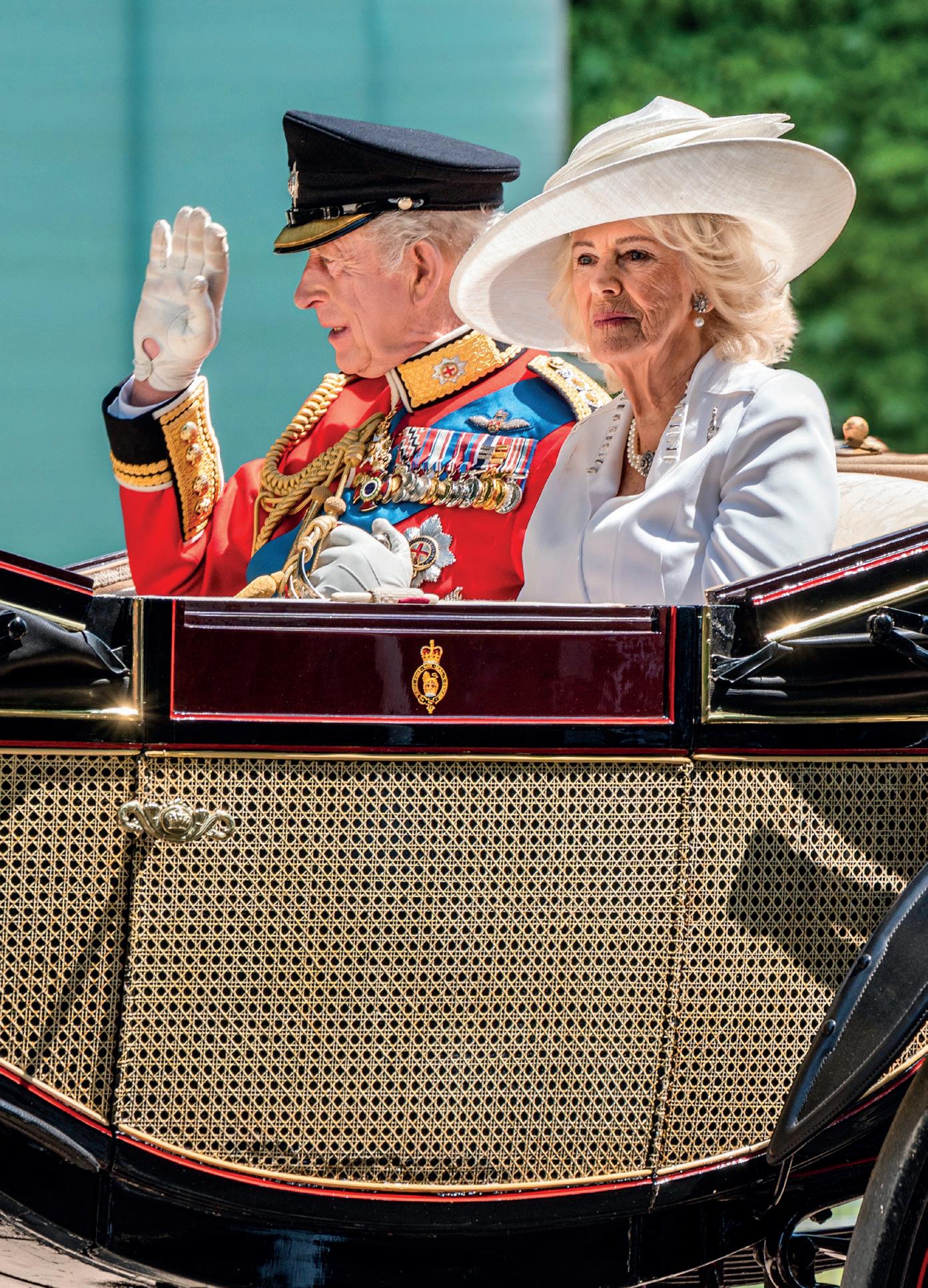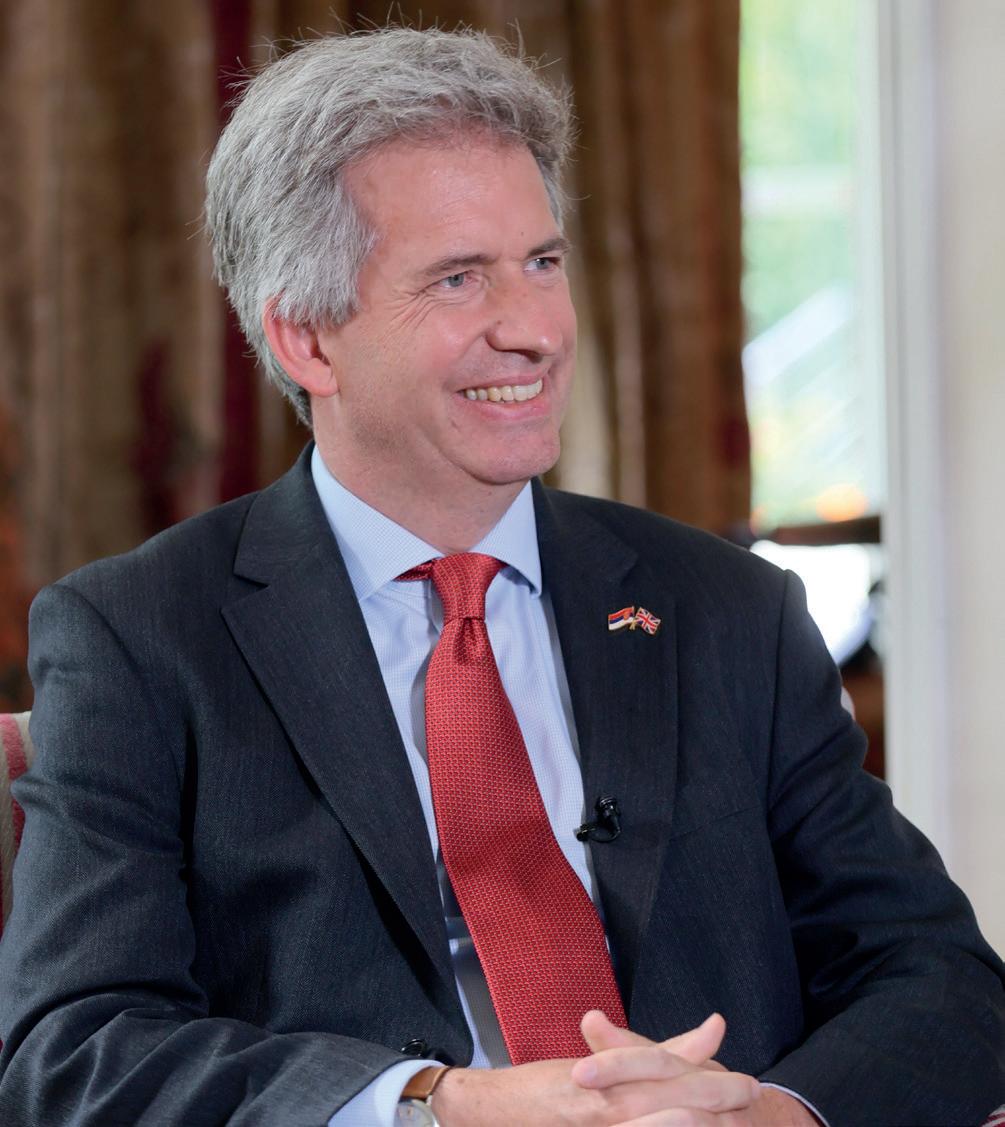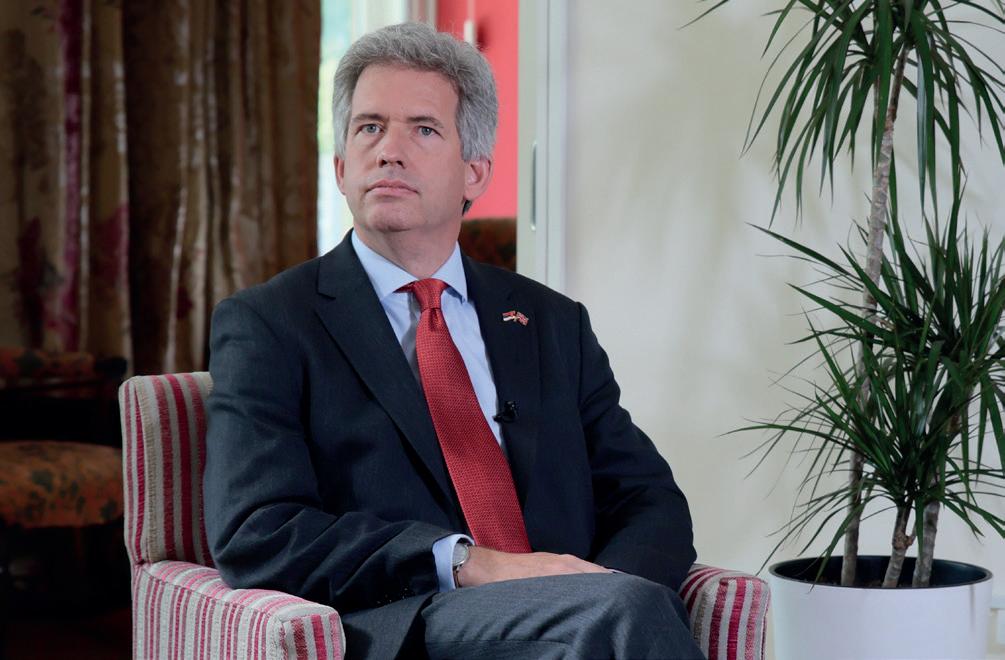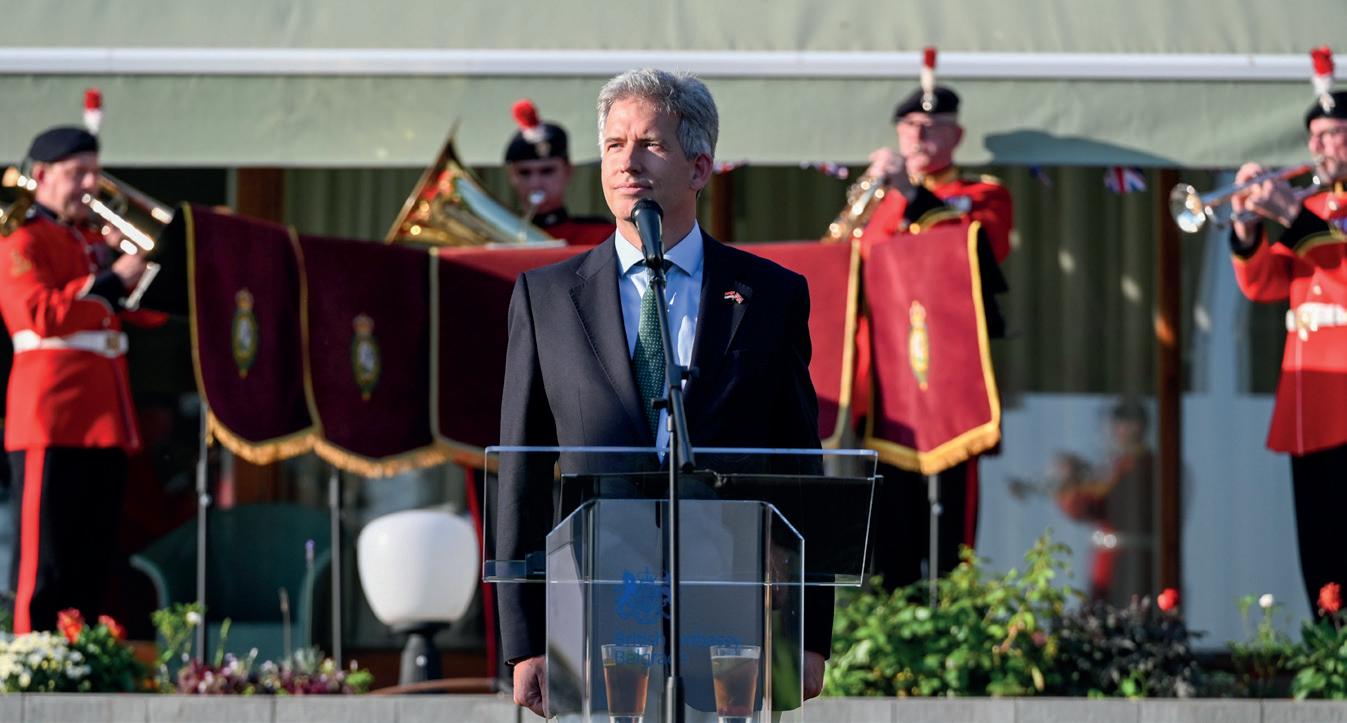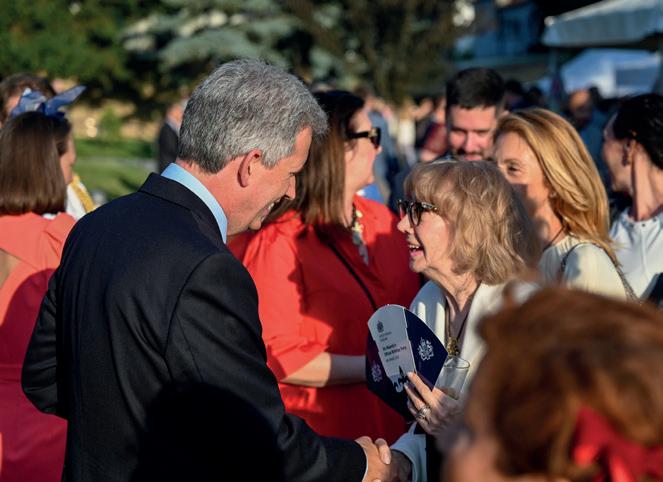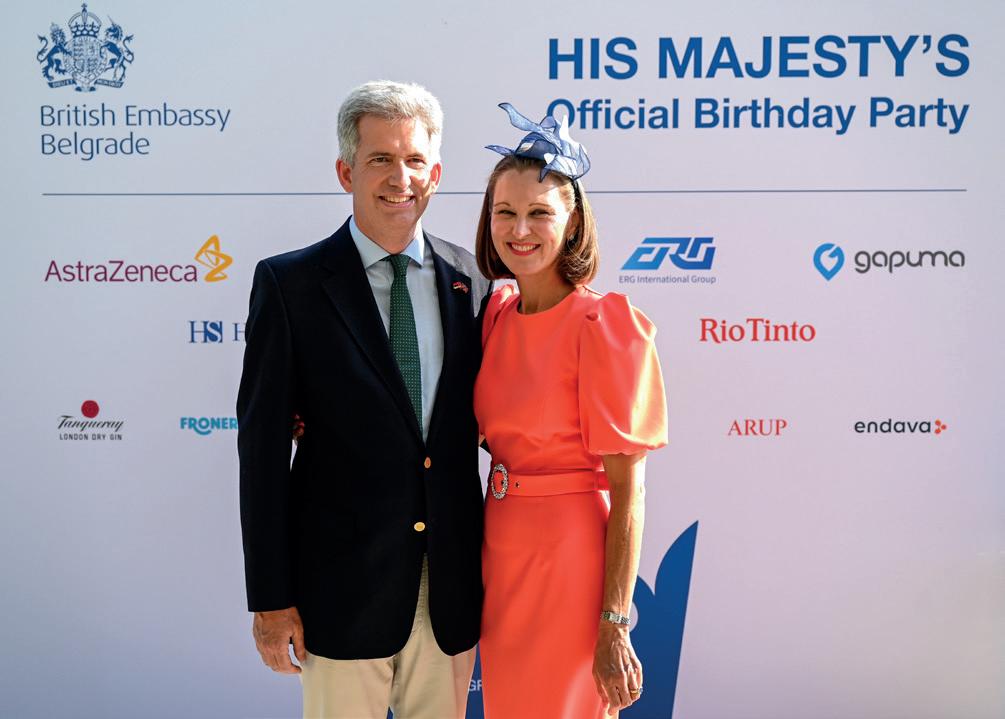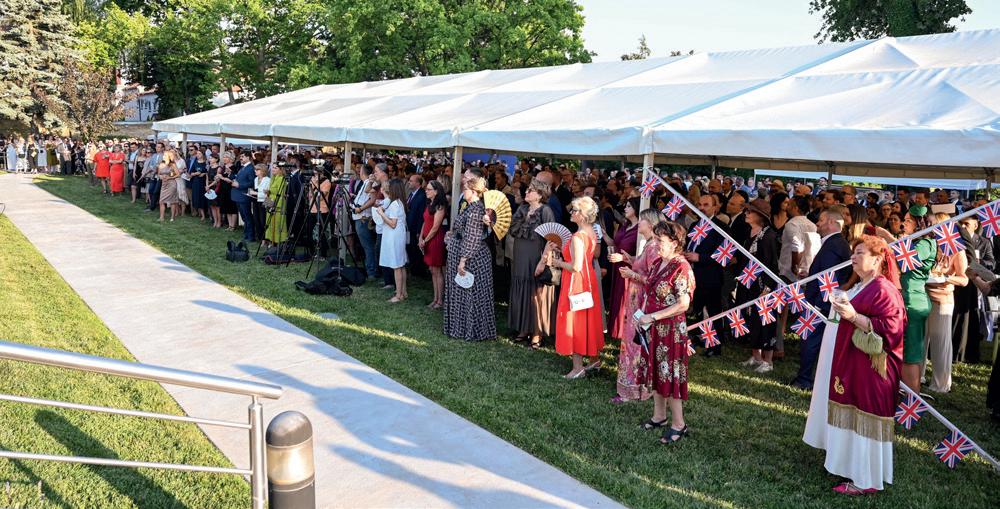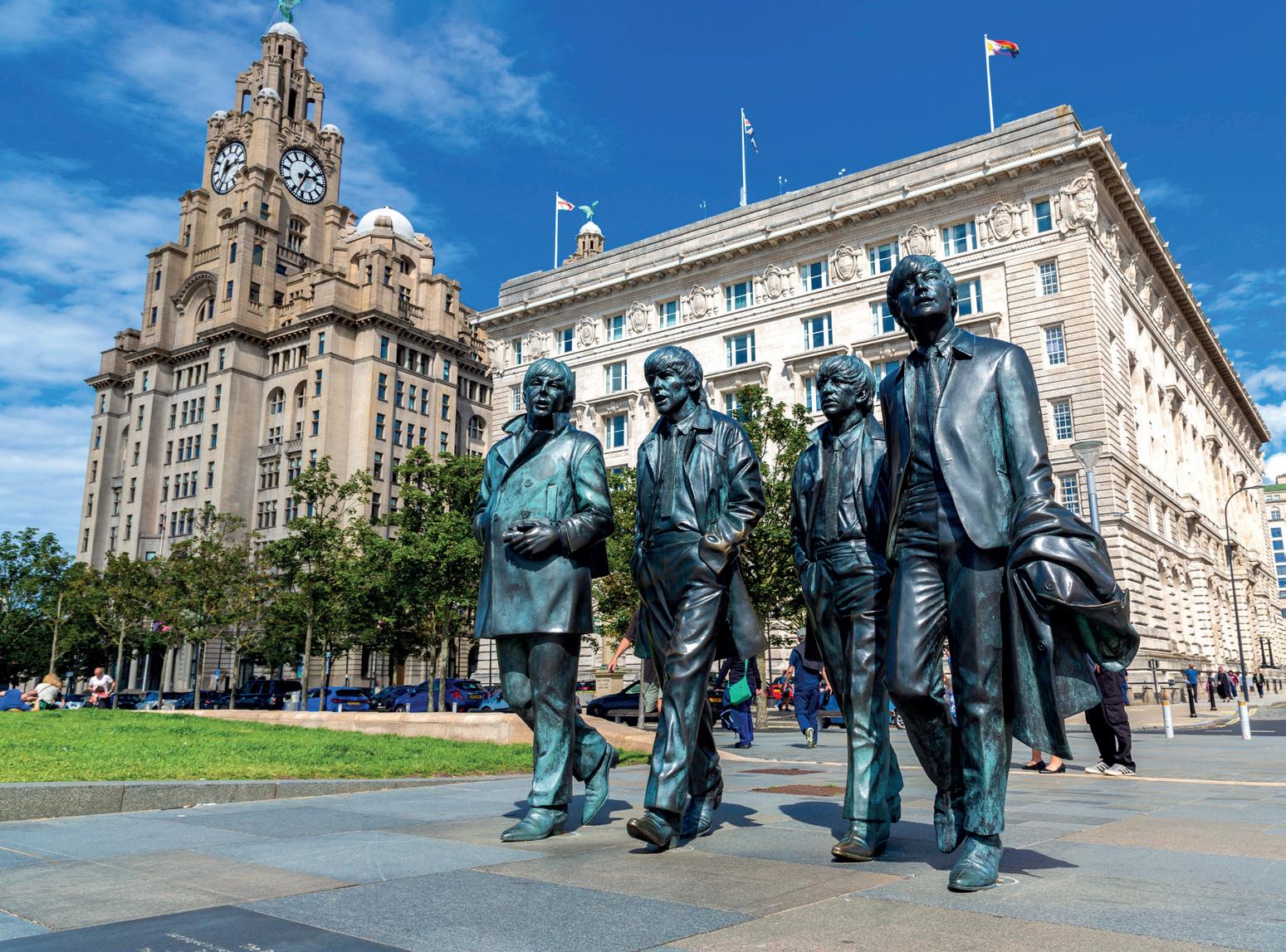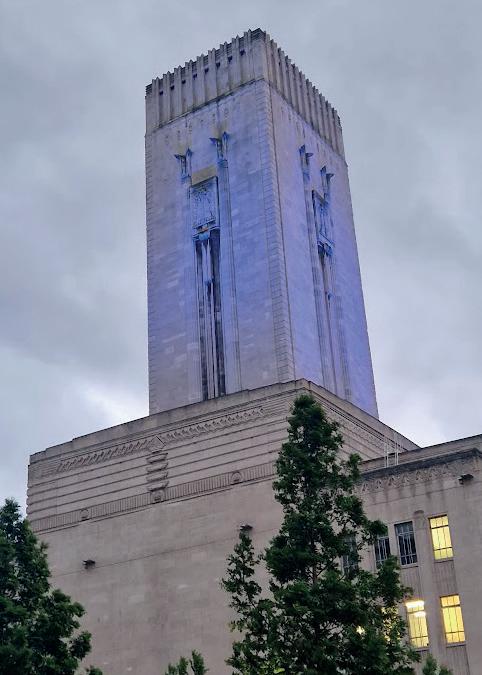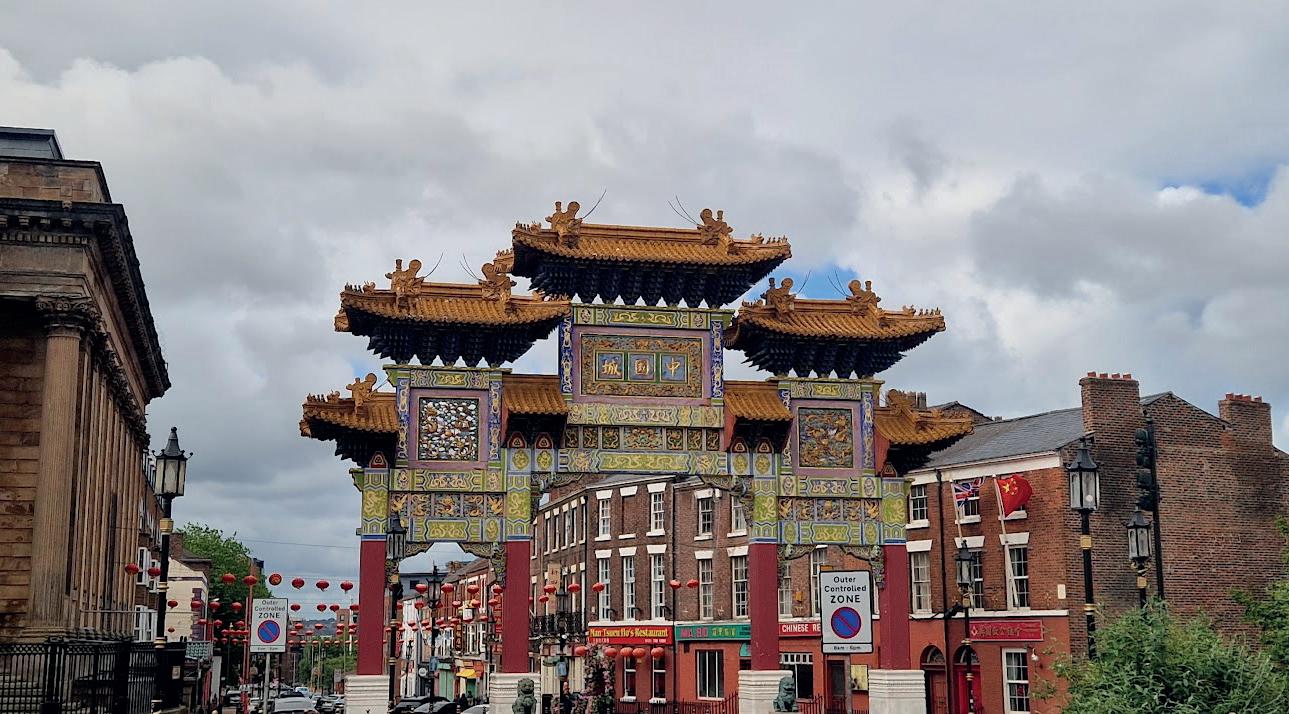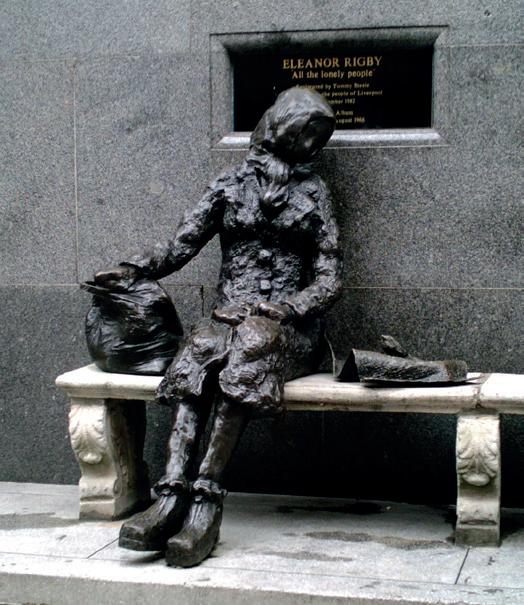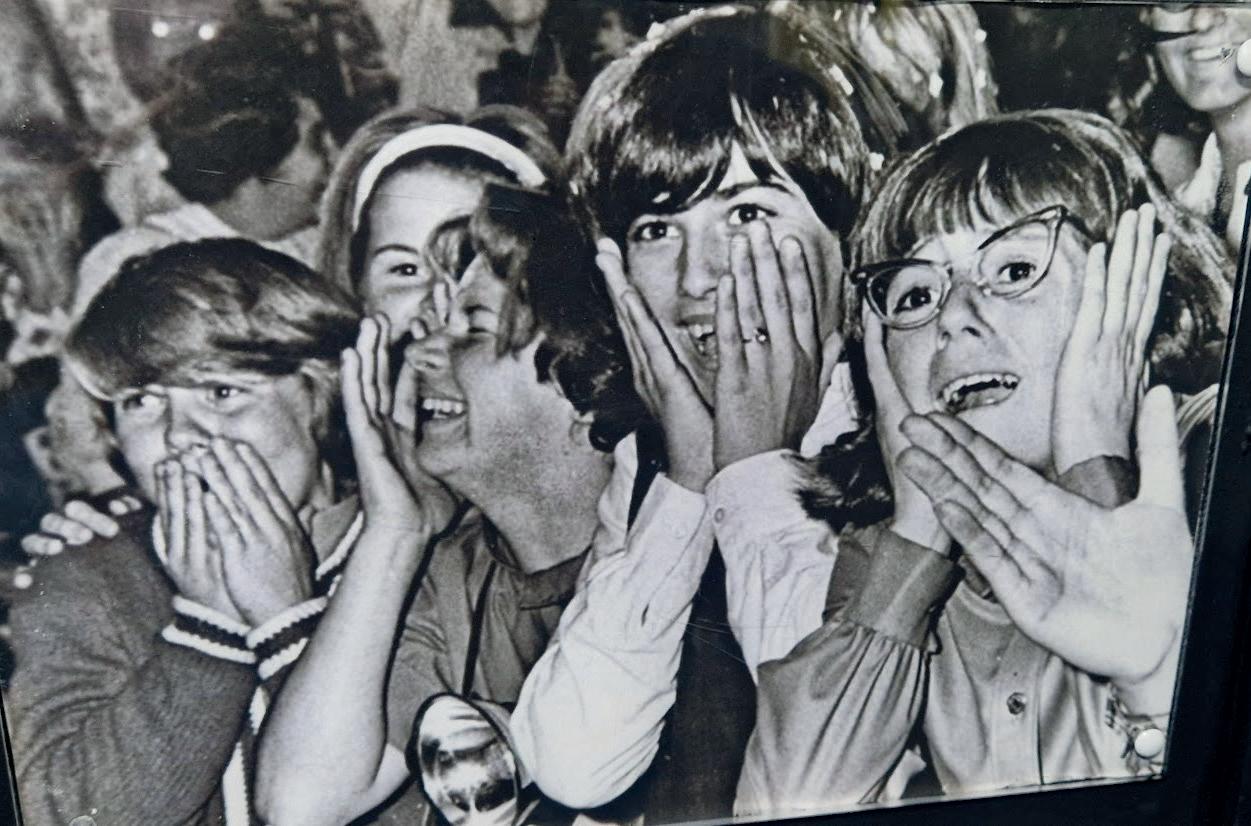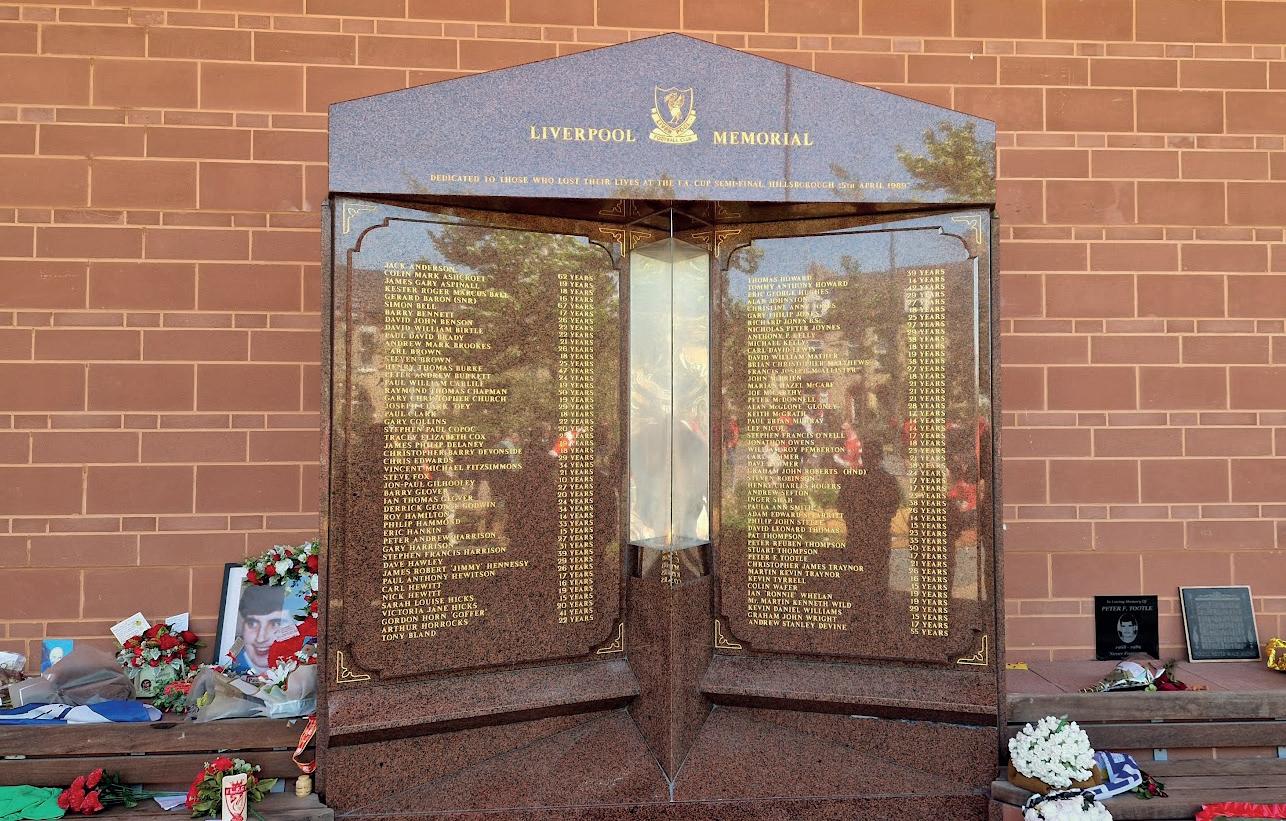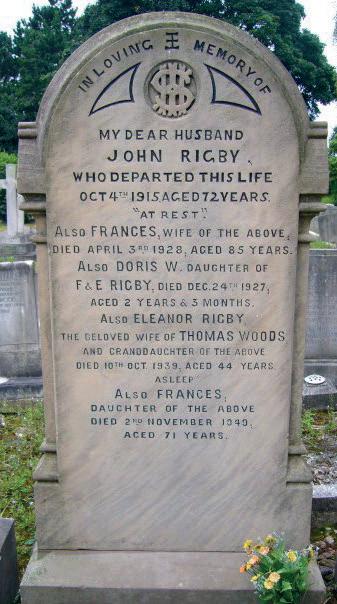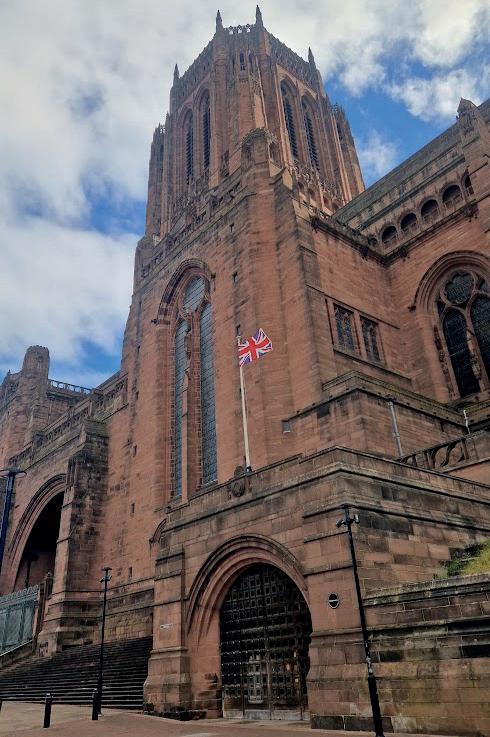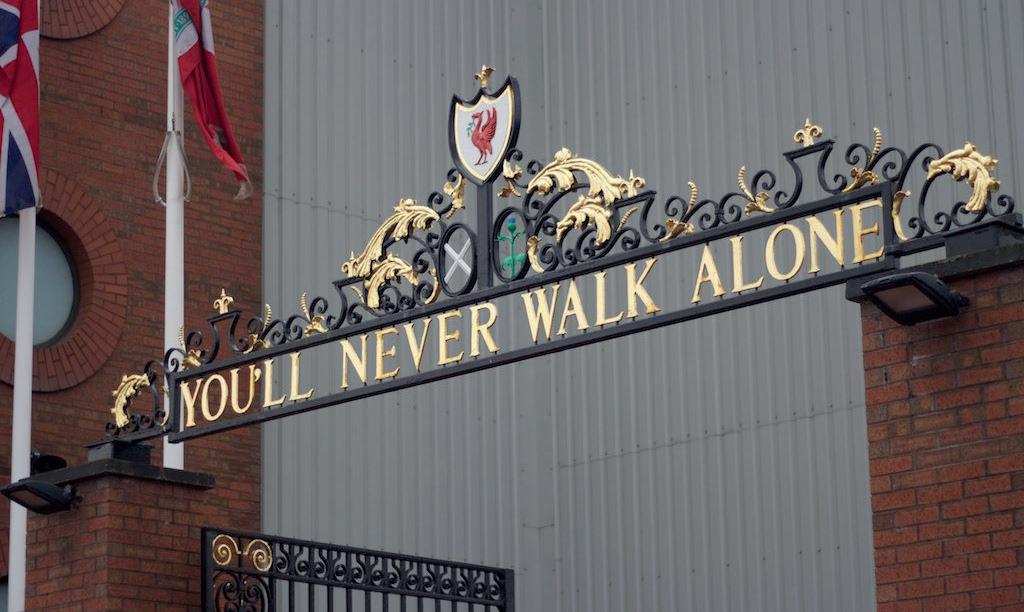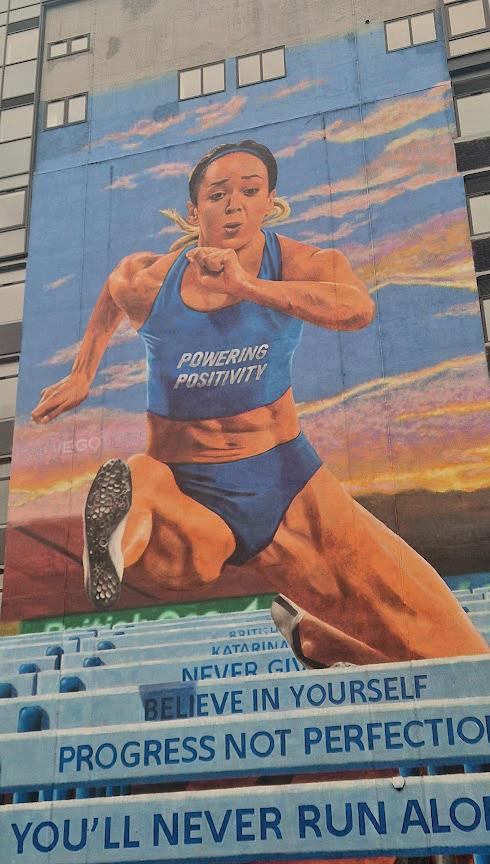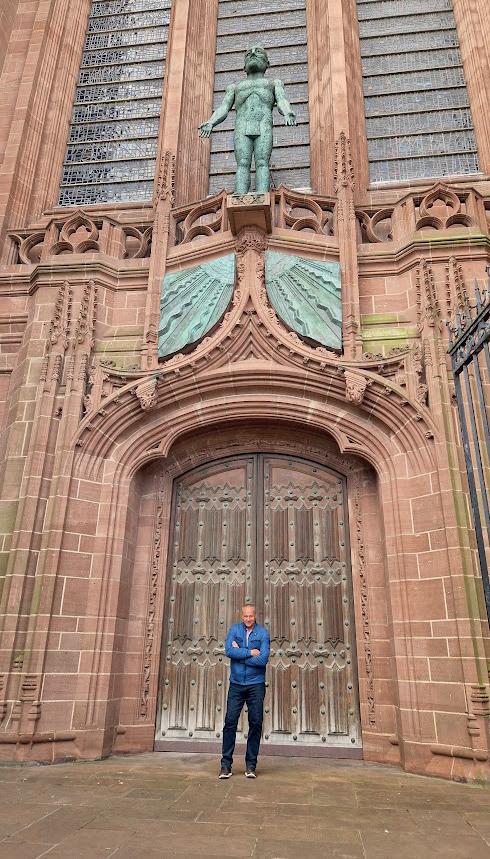The Space Between Us Is Smaller Than We Think
How the UK and Serbia Are Rediscovering Their Natural Partnership
In this exclusive interview for Diplomata, the television programme produced by Diplomacy&Commerce magazine in collaboration with Euronews Serbia, H.E. Edward
Ferguson, the British Ambassador to Serbia, speaks candidly about the evolving relationship between the United Kingdom and Serbia. From trade and education to security, culture and shared values, Ambassador Ferguson offers a thoughtful perspective on the opportunities and challenges that lie
ahead — and why he believes the two countries are, more than ever, natural partners.
I want to begin this conversation by inquiring about your diplomatic career. You’ve had an extensive career in the UK Ministry of Defence, as
well as diplomatic assignments in Bosnia and Herzegovina and Washington. How have these experiences shaped your perspective on working in Serbia?
The most relevant for me was my four-year experience as the British Ambassador to Bosnia and Herzegovina. That was my first encounter with the Western Balkans, and it was then that I developed a fondness for this region. It was also the first time I saw the enormous potential, especially among young people in the region. However, the slow pace of reforms somewhat limits that potential.
Working in the Ministry of Defence was fascinating, but I find it less relevant. Still, I have learned from personal experience the importance of peace. I sincerely hope this region will never experience conflict again.
I have to say that whether I’m drinking Jelen in Belgrade, Sarajevsko in Sarajevo, or Karlovačko somewhere else, people are all the same. Generous, kind, with similar hopes and problems, and a desire for a better life for themselves and their children.
I spent four years in Washington before starting my mandate here. The most important thing I learned there is how focused the United
WE HAVE FAR MORE THAT CONNECTS US THAN DIVIDES US
States is today on China and the Indo-Pacific region. I believe they expect Europe to solve its problems. I believe the United Kingdom has demonstrated genuine leadership in European security over the past few years. Still, our goal is to collaborate with Serbia and all neighbouring countries to help you realise your full potential.
H.E. EDWARD FERGUSON
The British Ambassador to Serbia
You have repeatedly mentioned the great potential for enhancing cooperation between Serbia and the United Kingdom, particularly in areas such as trade, technology, environmental protection, as well as culture and education. During your mandate, have you achieved some of these goals, and what would you like to accomplish before the end of your term?
I see my role as the British Ambassador as building more modern and forward-looking relations with Serbia. That doesn’t mean we’ll agree on everything, but we strive to build a relationship based on mutual respect and shared interests. We engage with all stakeholders in Serbia on the importance of reforms and resolving long-standing disputes with our neighbours, while also working to strengthen our bilateral relations.
I’m excited about the potential in the economic and trade sectors. Our annual trade exchange already exceeds £ 1 billion, which is great. The most advanced sectors of the economy are growing, including digital technologies, biotechnology, and renewable energy.
Cooperation with Serbia’s security services is also important. We’re working together on operations against organised crime and illegal migration, which is of great significance. I find it rewarding to work on connecting people from Britain and Serbia, especially through cultural projects.
Last week, I opened the David Hockney exhibition at the Museum of Contemporary Art in Belgrade — for me, that was fantastic. This week we’re organising the King’s Birthday celebration, where we expect over a thousand guests. We’re trying to refresh our relationship and build it for the future. It’s a very active relationship between Britain and Serbia.
The UK actively supports Serbia’s accession to the European Union. On the other hand, the UK has left the EU, yet still participates in the work of its institutions. What role do you see for the EU in Serbia and more broadly in the region?
Serbia has independently decided that it wants to join the European Union, and that makes perfect sense to us. In my experience, you are a European country, surrounded by EU and NATO members, and the vast majority of your trade is with Europe. We fully support that and want to work towards achieving that goal.
The EU accession process is important due to its impact on reforms, institutions, the rule of law, media, and other key areas. As you mentioned, in 2016, we decided to leave the EU for our reasons. We can’t change geography — we have a different history, economy, and set of circumstances. Still, we recognise that the current security situation in Europe, especially after Russia invaded Ukraine, is very tense. That’s why we want to work even more closely with the EU.
A few weeks ago, we reached an agreement with the EU that will improve our trade and also open the door to cooperation in
OUR TRADE EXCHANGE ALREADY EXCEEDS £1 BILLION — AND IT’S STILL GROWING
defence and security. That’s good news. This year, we’ll be hosting the Western Balkans Summit in London, as part of the Berlin Process. It’s a great opportunity to work with Serbia and other countries in the region, and to support your path toward the EU.
You also mentioned NATO. How do you view the Serbian Government’s position on NATO? Of course, I fully understand that Serbia has a complicated history with NATO. We respect that. We fully acknowledge your decision on military neutrality — that’s fine with us. If you ever decide to change that position, we will, of course, support you, just as we supported Finland and Sweden.
We believe it has never been more important to preserve peace and security in Europe and to prevent aggression from nonEuropean Russia. That’s why we work with all countries, regardless of whether they are NATO members. We maintain good relations in the field of defence with Serbia, particularly in the areas of military medicine and education. I’m pleased that our soldiers are serving alongside UN troops in Cyprus, and that the British contingent
will once again take part in the “Platinum Wolf” exercise here in Serbia this year.
We’re already doing a lot together, but I’m convinced there is much more room for deeper cooperation.
Last year, the United Kingdom called on both Kosovo and Serbia to demonstrate commitment to dialogue at the UN Security Council. How do you see Serbia’s role in maintaining regional stability?
Put, Serbia is the largest country in this region, both in terms of population and economy. That means you have a significant role to play in maintaining regional stability. And I think that’s very important.
Since my last visit to the region as Ambassador to Bosnia and Herzegovina, we’ve seen some progress in relations with Albania and Hungary. However, I would like to see faster progress in the relationship between Belgrade and Sarajevo, for example. And, of course, when it comes to the normalisation of relations with Kosovo.
You mentioned trade, which we’ve already praised as an area of growth. The trade reached £1.1 billion in 2024, representing
ART,
MUSIC, AND SPORT CONNECT PEOPLE IN WAYS POLITICS NEVER CAN
a 3.6% increase from the previous year. What factors have contributed to that growth?
Our trade exchange is continuously growing. I think that’s fantastic. There are several reasons behind it. I believe Serbia has great economic potential.
Companies that have entered the Serbian market are impressed by the quality, especially of your people. That, in my opinion, is the most important factor. We are currently the third-largest trading partner in terms of trade and services with Serbia, behind the US and Germany.
That’s particularly thanks to links in the digital sector, which is growing rapidly. London seems to be the epicentre of the global digital industry. We are the largest in Europe, with a market worth over £ 1 trillion. So we are a natural base for Serbian companies.
At the same time, an increasing number of British companies are investing in Serbia. Recently, the company Paysend opened an office in Belgrade. We have companies across various sectors, including construction, renewable
energy, agriculture, mining, technology, biotechnology, and many others. And I think that’s fantastic — but I want us to build even more.
Another factor that has contributed to trade between the United Kingdom and Serbia is the customs agreement signed by our two countries last year, which came into force in May this year. How will that agreement improve the efficiency of trade?
It was the first international agreement we concluded after Brexit in the customs area. It’s not a copy of the previous model with the European Union, and I think that shows how seriously we take our relationship with Serbia.
We hope it will serve as a foundation for even greater cooperation, particularly in the fight against organised crime and illicit finance, as well as for further discussions on the efficiency of our systems and standards in customs. The goal is to improve customs relations for the benefit of all companies.
You mention benefits. What benefits can Serbia gain from the UK’s global trade strategy?
We hope those benefits will be mutual, of course. As I said, I see these kinds of relations as a bright spot in our bilateral ties. Our new government is highly focused on promoting economic growth and supporting British companies globally.
Increasingly, companies are discovering the Serbian market and bringing with them excellent standards of business and ethics. I hope that will be beneficial for Serbia.
One of the most powerful tools I have as British Ambassador is UK Export Finance — a form of financial support we offer Serbia, up to £5 billion. It’s an opportunity to transform Serbia’s infrastructure and energy, and also to attract even more British companies.
Fantastic. One topic we can’t avoid when discussing diplomacy is the US and the tariffs introduced by the Trump administration. For example, as of 4 June, import taxes on steel and aluminium have been raised to 50%, while for the UK, they remain temporarily at 25%. How does the United Kingdom view this approach?
I spent four years in Washington, and from personal experience, I
can say that there are no closer allies than the UK and the US.
Precisely for that reason, we reached a new and important agreement with the US in the trade sector a few weeks ago, so we won’t be affected by the additional tariffs that will be imposed on other countries. We’re working with the US on implementing that agreement, and we hope to see the 25% tariffs and other barriers lifted.
I believe this will lay a solid foundation for further cooperation between the UK and the US in the newest and most exciting sectors, such as space exploration, nuclear fusion, quantum technology, biotechnology, and others.
The United Kingdom and Serbia share a rich cultural heritage, particularly in the realm of football. Unfortunately, we also share some challenges, such as hooliganism and fan safety at matches. In the UK, Margaret Thatcher introduced stricter measures that eventually brought order. What is the British recipe that Serbia could learn from?
I wouldn’t say we have all the answers. The situation isn’t perfect. However, from the 1980s to the present, we’ve made significant progress. Our stadiums are now much more inclusive and safer, which is fantastic.
That didn’t happen overnight. We worked together for years, with a joint effort involving the football association, the police, the government, fans, the media, and everyone else. Everyone worked
together, and I think the situation is much better now than it used to be; however, it’s something we must constantly work on.
On that note, I’m excited that this year, in September, England will be playing Serbia here in Serbia — for the first time since 1987, I think. Very exciting. And then the return match at Wembley in November. I hope it will be a very safe and fantastic match.
The UK is also known for its music. Our EXIT Festival, the largest music festival in Serbia, has hosted bands such as Deep Purple, The Prodigy, and, of course, The Cure. These bands have had a profound influence on our music and rock scene. What role do you see for music, festivals, and the arts in general in modern diplomacy?
I think they’re very important, because art, music, film — they’re fantastic ways to connect people. When I first arrived in this region, I was amazed by how much people here love British music, art, fashion, film, television… and of course, football.
These are the areas where we’re most closely connected. As I mentioned, I opened the David Hockney exhibition here
in Belgrade last week. One of my favourite events last year was the Ed Sheeran concert — it was a huge party, a fantastic atmosphere.
Another special moment was the fashion show we organised at the residence, featuring British and Serbian designers.
As you said, this summer we’ll see many British artists here. Massive Attack will be performing at EXIT, and Billy Idol, Faithless, and many other artists will also be in attendance.
I think that ongoing exchange means that whenever Brits and Serbs meet, they discover how much they have in common. Both bands and ambassadors are ambassadors for their countries, and that’s a powerful tool for creating a positive image of Britain in Serbia.
I haven’t mentioned it yet, but I’m especially looking forward to the performance by a local Beatles tribute band at our celebration this week. I’m sure it’s going to be fantastic. Absolutely.
You also mentioned education. Are there opportunities for Serbian students to study in the UK, and vice versa — for British students to come to Serbia?
IF SERBIA EVER DECIDES TO CHANGE ITS POSITION ON NEUTRALITY, WE’LL SUPPORT YOU, JUST AS WE DID WITH FINLAND AND SWEDEN
Yes, there are plenty of opportunities. Many Serbian students are already studying in England, and I come across them wherever I go. Just yesterday, for example, I was in Šabac and met a musician there who had studied in England.
One of the best things our government does here in Serbia is the Chevening Scholarship programme. It’s a fantastic opportunity for young people from Serbia to study at universities in the United Kingdom — completely free of charge — for one year at the master’s level.
We currently have over 300 people in Serbia who have completed the programme. I think that’s fantastic. Additionally, we offer other scholarships, including those specifically for women in STEM fields and professionals in cybersecurity.
We now also have a new opportunity — a joint course from the University of Cambridge called Ignition. It’s a six-month mentorship and training programme, conducted online and in Cambridge, designed for startups and innovators from Serbia. I hope many companies will apply. Absolutely.
What do you envision as the future of relations between the United Kingdom and Serbia? I think one of the challenges we face is that we often view each other through the lens of the 1990s. And we forget that for most of the past 150 years, we’ve been close allies and partners. I would like us to work together in the future to revive the spirit of partnership we once had and also to modernise that relationship, because I believe we are natural partners — that has been my experience throughout my time in Serbia, and that will be my mission.
Looking back on your time as the British Ambassador to Serbia, what message would you leave for future generations of diplomats and citizens working to strengthen the relationship between the two countries?
That sounds a bit like a farewell message (laughs) — I plan to stay for another two or three years — but I would say that we have far more that connects us than divides us. I would emphasise that we are natural partners, and I would love for us to work even more closely in the future.
Long Live the King – and the Friendship
A classic British garden party with music, pageantry, and a toast to friendship
His Majesty King Charles III, as the sovereign of the United Kingdom, is also its most prominent diplomatic figure — one whose public service is dedicated to strengthening old partnerships and building new ties between nations. For this reason, the official birthday of British monarchs is celebrated globally as a symbolic day of the British diplomatic service.
Although King Charles III celebrated his 76th birthday on 14 November last year, the formal celebration took place — as tradition dictates — in June, marked by public festivities in London, across the UK, and throughout the Commonwealth. This year’s official celebrations were held on Saturday, 14 June.
The tradition of celebrating the sovereign’s birthday in summer was established for practical reasons. Monarchs born in the colder months often faced weather-related difficulties when organising parades and other open-air events. The celebration is always opened with the “Trooping the Colour” ceremony in front of Buckingham Palace. It is believed that the first
BRITS AND SERBS LOVE THE SAME THINGS — MUSIC, ART, SPORT. THAT’S WHERE DIPLOMACY
BECOMES FRIENDSHIP
such parade took place during the reign of King Charles II (1660–1685). In 1748, King George II, born in November, decided to link his official birthday celebration with the annual military parade held in
June, due to the milder weather. Since 1760, the parade has been held every year. It was King Edward VII (1901–1910), also born in November, who formalised this tradition as an annual event.
In Belgrade, the celebration of His Majesty’s official birthday was hosted by H.E. Edward Ferguson, the British Ambassador to Serbia, and his wife, Caroline. The event took place in the lush garden of the British Residence and gathered more than a thousand guests from Serbia’s political, diplomatic, cultural, and business spheres.
This year’s musical programme featured members of the Royal Regiment of Fusiliers, who performed alongside the “Stanislav Binički” Artistic Ensemble of the Serbian Armed Forces the evening before. The highlight of the evening was a performance by The BestBeat, Serbia’s acclaimed Beatles tribute band, in honour of the 65th anniversary of the legendary Liverpool band’s founding.
Caroline Ferguson wore a handmade fascinator crafted by members of the Ethno Network, an organisation she proudly supports as a diplomatic patron. The network is devoted to economically empowering women and preserving Serbia’s cultural heritage through traditional craftsmanship.
The event was made possible thanks to the generous support of the following partners: AstraZeneca, British Motors, ERG, Gapuma, Harrisons Solicitors, Menzies Aviation, Rio Tinto, Pernod Ricard, Froneri, Delta DMD, G4S, Bechtel, Arup, and Endava.
In his speech, Ambassador Ferguson welcomed guests with warmth and humour, reflecting both on the significance of the occasion and the growing partnership between the UK and Serbia:
“Caroline and I are both thrilled to have you all with us to celebrate the 76th birthday of His Majesty King Charles. He’d be delighted to know that we are all here.
When Caro and I visited him at Buckingham Palace, he told us all about his wonderful trip in 2016 to Belgrade and Novi Sad, and to the Kovilj monastery. And, of course, as a champion for nature and biodiversity — and a man who famously talks to plants — I’m sure he would be very pleased to know that tonight we are celebrating him in this lovely garden.”
He noted that celebrating a birthday, rather than a national day, gave him the chance to speak more personally. “While there have been some days, and some stories, that I could have done without, overall, I’m really pleased with the progress that we have made over the past two years in building a more positive, modern and forward-looking relationship with Serbia. From trade and tech, to defence and security, to culture and the arts, it’s an exciting time to be here and we’re breaking new barriers all the time.”
Reflecting on the past year, he spoke fondly of travelling across Serbia with his family and discovering the richness of its natural beauty, culture, history, and above all, the creativity and talent of its people. He added with a smile: “There are still some things that confuse me as a Brit — like how rakija is considered a breakfast drink, how roundabouts are supposed to function, and the difference between tri, troje, trojica and trojka.”
He also spoke about shared passions between the two nations, from music to sport. “It’s pretty cool that Sean Bean is currently filming Robin Hood in Gornji Milanovac and Fruška Gora, and that last week we opened a fantastic David Hockney exhibition at the Museum of Contemporary Art here in Belgrade. I’m also excited that, in September, England will play Serbia in Red Star Stadium — the first time since 1987.”
THIS MAY NOT BE A CLASSIC BRITISH GARDEN PARTY — NO RAIN, NO UNDERCOOKED SAUSAGES — BUT IT’S THE BEST WE COULD MANAGE
This summer, several major British artists will perform in Serbia — including Massive Attack, Faithless, Billy Idol, and others — but as the ambassador noted, “Tonight we’ve decided to showcase the greatest of them all. It was 60 years ago this week that the Beatles recorded ‘Yesterday’, a song Paul McCartney woke up with, fully formed in his head. If English
is the closest that humans have come to a common language since the Tower of Babel, then the Beatles are the shared soundtrack of the human race.”
Guests were invited to enjoy British classics including fish & chips, Tanqueray gin, Chivas whisky, British beer, Pimm’s, and Nuii ice cream. “We’ve got plenty of treats for you tonight at this classic British garden party
— well, not entirely classic. A truly British garden party would include heavy rain and undercooked sausages. But this is as close as we could manage!”
The Ambassador thanked his embassy team — “Brits, Serbians, spouses and partners” — for their dedication and efforts, and expressed particular gratitude to the evening’s sponsors: “Without whom this party would be as dry and flavourless as an ambassador’s speech!”
The evening concluded with a toast:
“To the health and happiness of His Majesty King Charles III, and the enduring friendship between the United Kingdom and Serbia.”
Liverpool between myth and reality – music, memory and the price of modern loneliness
What Eleanor Rigby Would See From Her Window Today
Liverpool is home to the largest cathedral in the United Kingdom, one of the oldest football stadiums in the world, and two museums dedicated to The Beatles. Yet this time, it made headlines across the globe because of a previously unknown 53-year-old man.
Eleanor Rigby from the famous 1966 Beatles song about lonely people – collected rice in a church after a wedding, waited for days by the window, and lived inside her dreams. She also died in a church, and no one came to her funeral. Just as lonely was Father McKenzie, from the same song, as he wrote sermons that no one would hear.
I thought of the two of them as I stood at the threshold of the Liverpool Cathedral – the largest church and the most prominent place of worship in the entire United Kingdom. Its massive tower, rising 101 metres high, can be seen from almost every corner of the city and reminded me of another tower in Liverpool –that of the George’s Dock Building, an Art Deco masterpiece from 1934.
“YOU’LL NEVER WALK ALONE” – A SONG FROM A MUSICAL TURNED INTO A STADIUM ANTHEM OF DEFIANCE AND UNITY
When you approach the cathedral, it seems as though it was built in the Middle Ages –that’s how monumental it looks. However, specific details on the entrance portal reveal its origins – this is a 20th-century temple, constructed between 1904 and 1978. With a length of 189 metres (approximately 150 metres of interior space), Liverpool Cathedral is the longest church in the world and the fifth-largest overall.
In addition to this Anglican cathedral, Liverpool is also home to the Roman Catholic Metropolitan Cathedral of Christ the King. The two are less than a kilometre (half a mile) apart, joined by Hope Street.
Photo: Sergii
Figurnyi / Shutterstock
George's Dock Building
The list of records connected to this church doesn’t end there. The organ, built by Henry Willis & Sons, is the largest in the United Kingdom and, with an astonishing 10,268 pipes, one of the biggest musical instruments in the world. When we entered the church, it was Sunday, and only the front section was used for worship, while the rest of the space was open to visitors.
Let’s return for a moment to Eleanor Rigby and Father McKenzie. In the 1980s, a gravestone was discovered in the cemetery of St. Peter’s Church in Liverpool bearing the name of the Rigby family – among them, an Eleanor who died in 1939 at the age of 44. Nearby lies the grave of the McKenzie family.
THE BEATLES ARE NOT A MEMORY HERE – THEY’RE A LIVING PRESENCE, FROM MUSEUMS TO BRONZE ON STREET CORNERS.
Paul McCartney later claimed that, although he and John Lennon often walked past the gates of St Peter’s Church, the name in the song was not inspired by the gravestone there, and that his Eleanor Rigby was an entirely fictional character.
In fact, in the song’s early version, the heroine was called Daisy Hawkins, while the priest was darning his socks under the name Father McCartney. McCartney eventually settled on the final title by combining Eleanor, inspired by an actress from the film Help! – and Rigby, a name he had seen on a shopfront in Liverpool. The priest’s surname, McKenzie, he reportedly picked at random from a phone book.
Still, countless Beatles fans continue to visit the grave of Eleanor Rigby, who died in 1939, firmly believing she is the very same woman immortalised in the song.
On Liverpool’s Stanley Street stands a monument to the fictional Eleanor Rigby, bearing the inscription “AlltheLonelyPeople.”
Liverpool
Beatles Museum
Entrance to Chinatown
Eleanor Rigby Statue
Of course, the reason for my visit to Liverpool wasn’t to explore the roots of what many consider the greatest band in the world, born from these very streets and pubs. I came to watch the football match between Liverpool and Crystal Palace, and to witness the crowning of this year’s Premier League champions.
However, once you set foot in this city, the Beatles are with you at every turn. A statue of the band’s four members stands at Pier Head, near the waterfront. Unveiled in 2015, it was created by sculptor Andy Edwards and donated to the city by The Cavern Club, where the Beatles performed in their early years. The club was closed in 1973, reopened in 1984, and then temporarily closed again between 1989 and 1991. It has been running nonstop ever since. In front of The Cavern Club stands a statue of John Lennon.
The company Norwegian Cruise Lines features Cavern Clubs on four of its cruise ships, where tribute bands perform Beatles music.
Liverpool is also home to two Beatles museums: The Beatles Story near the waterfront, close to the statue of the band members, and the Liverpool Beatles Museum in the city centre, not far from The Cavern Club. Admission to both is £20. They display memorabilia, photographs, chronological facts and recordings divided into different phases – and that’s about it. Somehow, I felt the Beatles deserved a larger, more modern and interactive museum.
We arrived at Anfield, the stadium of Liverpool F.C., two hours before the match against Crystal Palace, after which this year’s Premier League champion would be announced.
Anfield was built in 1884 and ranks as the 9th oldest football stadium in the world. Unsurprisingly, all nine oldest stadiums are in England.
Anfield was originally home to Everton (1884–1891), but after the club relocated to Goodison Park, it became—and has remained ever since—the home of Liverpool F.C. The stadium has undergone no fewer than 13 renovations, and today it can accommodate 61,000 spectators.
In the bustling crowd of fans arriving early to find their seats, one phrase caught my eye: “You’ll Never Walk Alone.” It is, of course, the club’s anthem – originally a song from the 1945 musical Carousel. Later, I heard it sung by tens of thousands of fans inside the stadium, and it honestly sounded powerful.
HILLSBOROUGH: 97 NAMES CARVED IN STONE, STILL WAITING FOR FULL JUSTICE.
Forest. A fatal human crush occurred on the terrace section occupied by Liverpool supporters. The final toll was 97 dead and 766 injured – a figure significantly higher than the Heysel Stadium disaster in Brussels in 1985, during the European Cup final between Liverpool and Juventus, where 39 fans were killed and over 600 injured.
The city of Liverpool is home to another memorial dedicated to Hillsborough – a circular monument with a relief depicting the events of that tragic day in Sheffield, inscribed with: “HILLSBOROUGH DISASTER. WE WILL REMEMBER THEM.”
Interestingly, although the Hillsborough tragedy claimed more lives, it is often less known internationally than Heysel, which is frequently cited as a turning point – the moment after which Margaret Thatcher “restored order among football fans.”
We waited for the start of the Liverpool–Crystal Palace match in the Carlsberg Lounge – fitting, as the famous Danish beer brand has been a long-time sponsor of Liverpool F.C.
Six years ago, I attended a match in the executive lounge of Manchester United and saw firsthand how football is a serious industry in serious countries like the United Kingdom.
At Anfield, too, former Liverpool stars walked around the lounge, posing for photos with fans and chatting with them, while waiters served cold beer and hot meat pies at halftime.
The match ended in a 1–1 draw, which was enough for the home team to secure its place at the top of the Premier League table and claim the title of champions.
We decided to walk from the stadium back to the hotel – about an hour’s walk
Liverpool Cathedral
Liverpool Memorial
Grave of Eleanor Rigby
– moving through a sea of cheerful, celebrating supporters.
That might have been the end of this report, had it not been for the news that arrived a day later, while I was already on a flight from London to Yerevan for a conference. A driver had ploughed into a crowd of celebrating fans on the streets of Liverpool, causing a serious incident.
The incident occurred the day after the match, on Monday afternoon, when 53-yearold Paul Doyle drove his car into a crowd of people. Seventy-nine individuals were injured, including four seriously, among them a child. The wounded ranged in age from nine to 78. Doyle appeared in court in Liverpool today but did not enter a plea, according to British media reports. He has been charged with dangerous driving and six additional offences, including intentional infliction of grievous bodily harm. The charges relate to injuries sustained by two boys, two women, and two men.
More than 50 people received medical assistance on Monday, with seven requiring further treatment and remaining in the hospital. If found guilty, Doyle could face a maximum sentence of life imprisonment.
Police have stated that the incident is not being treated as terrorism, but the motive remains unclear.
“He’s not young, he’s white! British, born on the island. Admit it – that’s not what you were expecting?” read one comment on social media, alluding to the fact that many had likely assumed the driver would be a young man, a migrant, probably of Muslim faith.
Had Eleanor Rigby still been watching from her window, what would she have seen today?
FROM ELEANOR RIGBY TO PAUL DOYLE – A CITY’S GHOSTS CHANGE SHAPE, BUT NEVER LEAVE.
A man, white and from her own national and social group, ploughed his car into innocent people.
What kind of world do the “grandchildren of the Beatles” live in? And are we, perhaps, even more depressed and alone today than Eleanor Rigby and Father McKenzie were, back at the beginning of this story?
Liverpool Cathedral Entrance
MuralLiverpool
You'll Never Walk Alone
